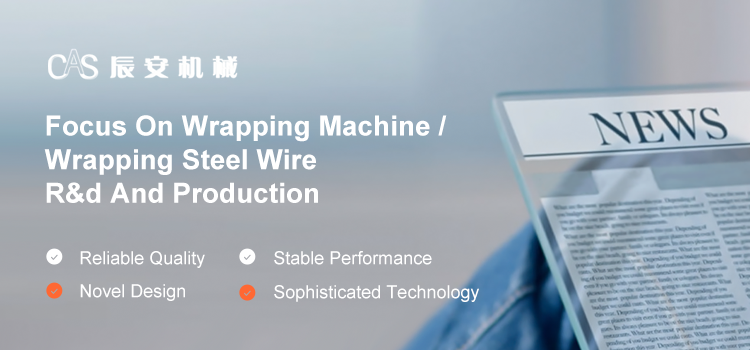Selection Criteria for Nylon Coated Wire Supplier
When selecting a nylon coated wire supplier, it is necessary to establish an evaluation system from the six core dimensions of quality, delivery, cost, technology, service, and sustainability, and refine the standards in combination with industry characteristics and procurement needs. The following is a specific analysis:
1. Quality: Core screening criteria
Certification system
Give priority to suppliers that have passed the ISO 9001 quality management system certification to ensure that their production processes are standardized.
If the product is used in special fields, it is necessary to confirm whether it complies with industry certifications such as ISO 13485 and IATF 16949.
Product performance verification
Physical properties: Test the tensile strength, abrasion resistance, temperature resistance, etc. of nylon coated wire to ensure that it meets the requirements of the use scenario.
Chemical stability: If it comes into contact with chemical substances, its corrosion resistance needs to be verified.
Reliability testing: Evaluate product life through accelerated aging tests that simulate the actual use environment.
Quality control process
Investigate whether the supplier has raw material inspection, production process monitoring, and finished product full inspection.
2. Delivery time: Ensure production continuity
Capacity matching
Calculate the matching degree between the supplier's maximum daily production capacity and the order demand to avoid delays due to insufficient production capacity.
Formula: Supplier daily capacity ≥ Order daily demand × Safety factor (usually 1.2-1.5).
Delivery flexibility
Evaluate whether the supplier can adjust the delivery batch according to the production plan (such as batch delivery, emergency replenishment).
Emergency response capability
Investigate the supplier's response plan in emergencies (such as equipment failure, raw material shortage), such as spare production lines, multi-supplier raw material procurement, etc.
3. Cost: Minimize total cost of ownership (TCO)
Price competitiveness
Compare the unit prices of different suppliers, but avoid simply choosing the lowest price (which may sacrifice quality).
Hidden cost control
Logistics cost: Give priority to suppliers with close geographical locations or free transportation.
Inventory cost: Evaluate the supplier's minimum order quantity (MOQ) and delivery cycle to avoid inventory backlogs.
Quality cost: Calculate additional expenses such as rework and returns caused by quality problems.
Cost optimization cooperation
Carry out value engineering (VE) analysis with suppliers to reduce costs through design optimization or material substitution.
4. Technology: Support product innovation
R&D capabilities
Investigate whether the supplier has the ability to develop new materials and improve processes, and whether it can provide customized solutions.
Advanced equipment
Give priority to suppliers using automated production lines and precision testing equipment to ensure product consistency.
Technical collaboration
Evaluate whether the supplier can provide technical consultation, sample testing, fault analysis and other support to accelerate the product development cycle.
5. Service: Improve the cooperation experience
Response speed
Test the supplier's response time to inquiries, sample requirements, and problem feedback, and give priority to suppliers who respond within 24 hours.
After-sales service
Confirm whether the supplier provides return and exchange policies, quality traceability, long-term technical support and other services.
Communication efficiency
Evaluate the supplier's communication channels (such as exclusive customer service, online platform) and language skills (especially when it comes to cross-border cooperation).
6. Sustainability: Comply with long-term strategies
Environmental compliance
Confirm whether the supplier uses recyclable materials, low-carbon production processes, and complies with environmental regulations such as RoHS and REACH.
Social responsibility
Investigate whether the supplier complies with labor laws and production safety regulations to avoid cooperation risks.
Willingness for long-term cooperation
Evaluate whether the supplier is willing to sign a long-term cooperation agreement, jointly invest in R&D, and form a strategic partnership.
Qingdao Chenan Machinery Co., Ltd. has the advantage of developing and producing rubber winding equipment, with higher technology than various equipment assembly manufacturers in the industry. For more information about nylon coated wire supplier, please contact us.
Company: Qingdao Chenan Machinery Co., Ltd.
Address: Yanjialing Industrial Park, East Chengma Road, Tongji New Economic Zone, Jimo District, Qingdao City, Shandong Province
Email: qdcajx@gmail.com

Recommended
02-05Material Properties of Black PET Coated Wires
02-04Precautions for 1 4 Nylon Coated Wire
01-29Technical Advantages of PET Coated Binding Wire
01-28Maintenance and Usage Precautions for Nylon Coated Steel Wire
01-22How is the Temperature Resistance of PET Coated Iron Wire?
01-21What are the Safety Features of Wire Rope Nylon Coated?









